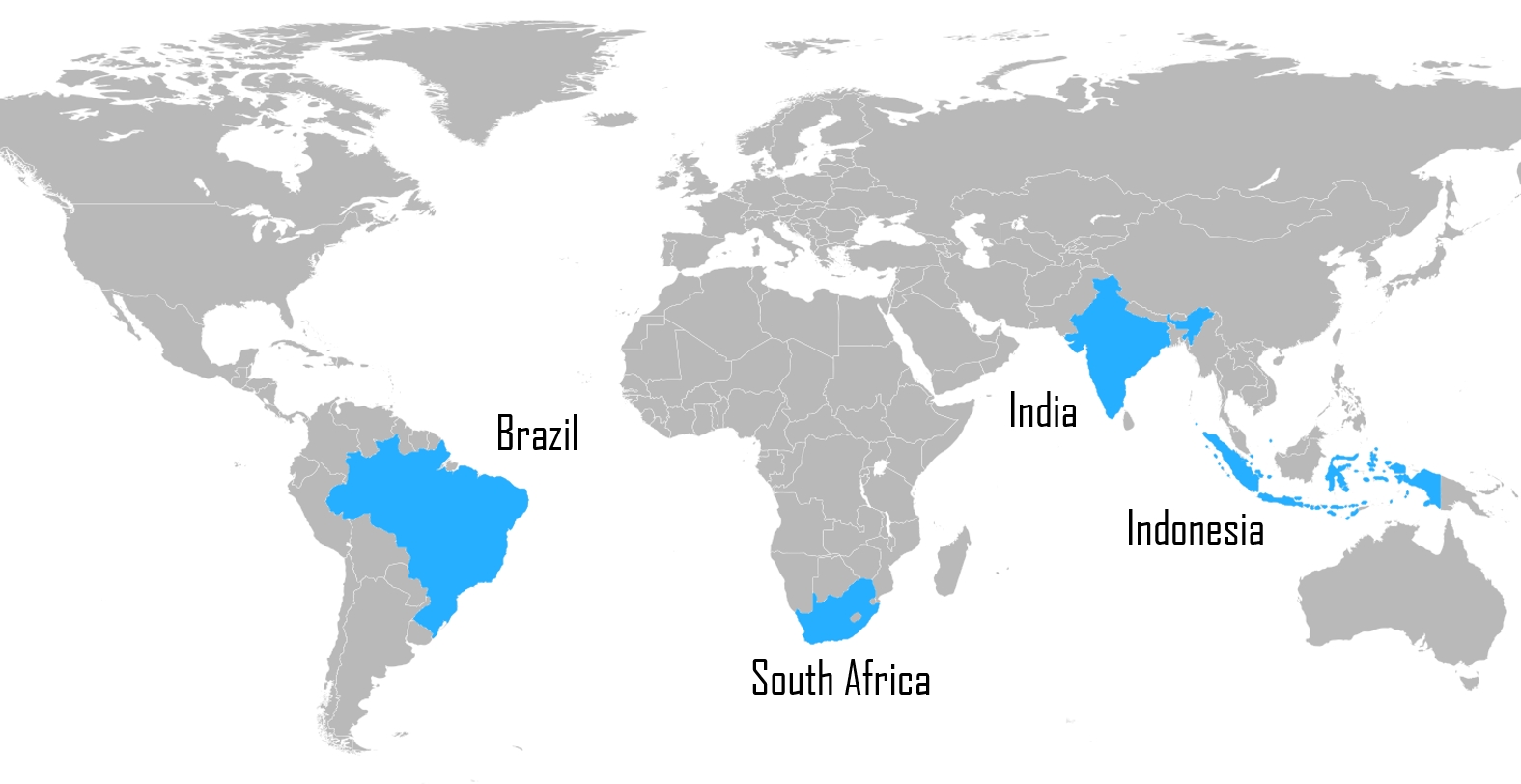Meaningful action against climate change requires strong forms of institutions. INLOCADE addresses the global challenge of institutionalizing climate mitigation efforts by focusing on two critical sectors in a set of emerging economies. More precisely, we concentrate on solar power and climate-smart agroforestry to explore and evaluate the political institutionalization of climate change mitigation in Brazil, India, Indonesia, and South Africa.
Climate mitigation efforts in four emerging economies
Emerging economies like Brazil, India, Indonesia, and South Africa have witnessed enormous positive economic and human development over the last decades. Their success was, however, often accompanied by environmental destruction and social conflicts. Achieving economic progress while at the same time securing social values and protecting the environment represents a major challenge for the future. At the global level, the fight against climate change and the successful implementation of the Paris Agreement very much hinge on developments in emerging economies like the ones at the center of the INLOCADE project.

Agriculture: climate-smart agroforestry
Climate-Smart Agriculture (CSA) is an integrated landscape management approach promoted by multilateral organizations to conceal food security and climate protection. It promises a more holistic and integrated management of landscapes and aims for reducing emissions, increasing productivity, and enhancing the resilience of local communities. Climate-smart agroforestry is a specific form of CSA that aims for forest-related conservation agriculture. Agricultural production often leads directly or indirectly to the deforestation of tropical rainforests. As a sustainable land-use system that combines food crops and trees, agroforestry corresponds to the challenges of forest protection and food security. In our research, we seek to investigate existing local climate-smart agroforestry initiatives with respect to their potentials and limits in terms of institutionalization.
Energy: solar power
Solar power refers to electrical energy converted from sunlight. It can be generated by photovoltaic systems or by using concentrated solar power (in solar thermal power plants). Photovoltaics is the globally most wide-spread form of solar power generation. As it is generally less environmentally and socially harmful than other alternative energy sources such as hydropower and biofuels, solar power is considered of crucial importance for low-carbon transformations. Its use is growing rapidly on a worldwide scale, however, in many countries with a huge potential, it remains underutilized. In our research, we seek to investigate existing local solar power initiatives with respect to their potentials and limits in terms of institutionalization.
How we assess political institutionalization
We operationalize the political institutionalization of climate change mitigation through four different types of change which relate to the formal and informal rules in the respective sectors:
- rhetorical and discursive changes,
- organizational changes,
- policy changes, and
- changes in implementation.
Thus, institutionalization is not only understood as a process but also a specific outcome in relation to the starting point. Changes can be anything between small or radical changes. As we focus on institutionalization and lock-in effects over time, we include rhetorical change as a very initial phase, and implementation plus roll-out as a highly advanced phase of political institutionalization. Rhetorical changes can be important signals to societal actors for shifting towards low-carbon transformation, e.g. investing in solar energy or moving towards forest-related climate-smart conservation agriculture.

